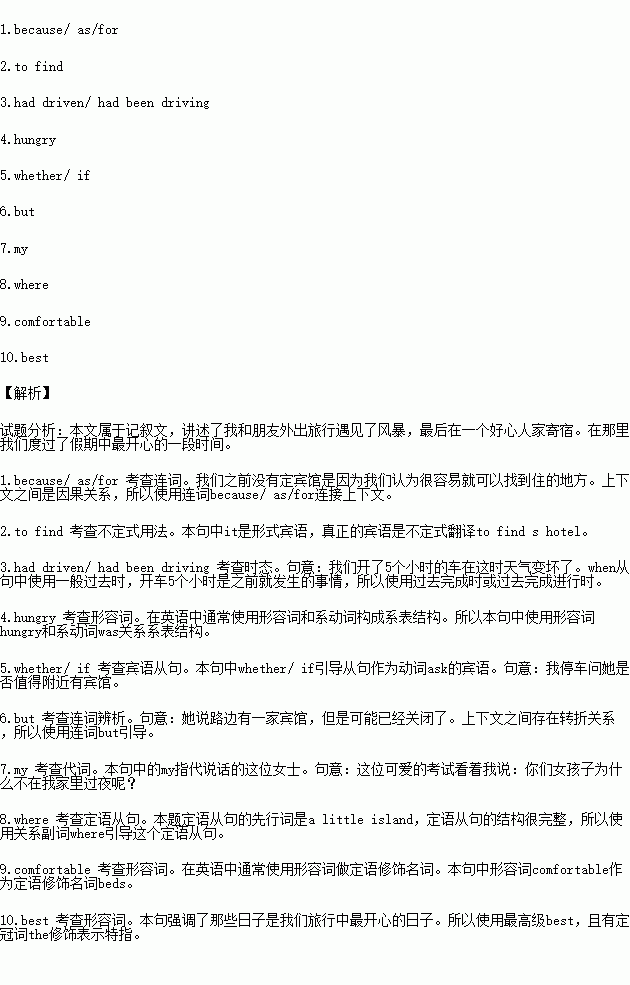题目内容
Last summer, my friend and I hired a car and headed for Toronto. We didn't book a hotel room 1.________ it was at the beginning of September and we thought it would be easy for us 2._______ (find) a hotel.
we 3._______ (drive) for five hours when the weather changed and it looked like a thunderstorm was coming. We got lost and both were4._______(hunger) when I saw an old lady parking her car. I stopped and asked 5.________she knew a hotel nearby. She said there was a hotel down the road,6._______it might have been closed. The lovely old lady looked at me and said,“Why don't you girls just stay the night at 7._______house? I'll cook for you.”
We ended up going to a little island in Lake Muskoka, 8._______ her family lived. We slept in the 9._______ (comfort) beds they built for their kids and they cooked for us. We stayed at their house for three nights in all and also met their friends. Those days were the 10.______ (good) part of our three-week trip! We were glad that we got lost and met the old lady.

